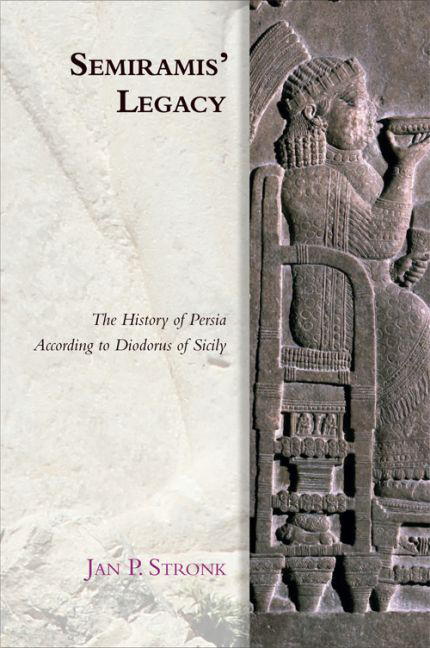Book contents
- Frontmatter
- Contents
- List of Figures and Tables
- Preface
- Abbreviations
- Series Editor's Preface
- Map
- Introduction: Diodorus' Work and Our Sources
- 1 Diodorus’ Sources
- 2 Ancient History: Assyrians, Chaldeans, and Medes
- 3 The Persians and the Greek Wars
- 4 Revolt and Sedition
- 5 Alexander the Great Defeats Darius III
- 6 From Persepolis to Babylon
- 7 The Period of the Diadochs: The Rift Opens
- 8 The Period of the Diadochs: The Rift Deepens
- 9 The Vicissitudes of the Diadoch Kingdoms: The Final Years of Diodorus' Persian Account
- 10 Semiramis' Legacy
- Conclusion
- Bibliography
- Index of Classical Sources
- Index of Modern Authors
- General Index
4 - Revolt and Sedition
Published online by Cambridge University Press: 10 May 2017
- Frontmatter
- Contents
- List of Figures and Tables
- Preface
- Abbreviations
- Series Editor's Preface
- Map
- Introduction: Diodorus' Work and Our Sources
- 1 Diodorus’ Sources
- 2 Ancient History: Assyrians, Chaldeans, and Medes
- 3 The Persians and the Greek Wars
- 4 Revolt and Sedition
- 5 Alexander the Great Defeats Darius III
- 6 From Persepolis to Babylon
- 7 The Period of the Diadochs: The Rift Opens
- 8 The Period of the Diadochs: The Rift Deepens
- 9 The Vicissitudes of the Diadoch Kingdoms: The Final Years of Diodorus' Persian Account
- 10 Semiramis' Legacy
- Conclusion
- Bibliography
- Index of Classical Sources
- Index of Modern Authors
- General Index
Summary
S. 54:
11.69.1–6:
Xerxes is murdered and finally succeeded by Artaxerxes I:
(11.69.1) With the passing of this year, Lysitheus was archon in Athens [465/4], and in Rome the consuls elected were Lucius Valerius Publicola and Titus Aemilius Mamercus. During this year, in Asia Artabanus, a Hyrcanian by birth, who enjoyed the greatest influence on King Xerxes and was commander of the royal bodyguard, decided to kill Xerxes and transfer the kingship to himself. Having communicated the plot to Mithridates the eunuch, who was the chamberlain of the king and enjoyed his supreme confidence, but simultaneously also a relative of Artabanus and his friend, Mithradates agreed to the plot. Led by him at night into the bedchamber, Artabanus, after killing Xerxes, set out after the sons of the king. These were three in number, Darius the eldest and Artaxerxes, who both stayed at the palace, and the third, Hystaspes, who happened to be away from home at the time: he held the satrapy of Bactria. Artabanus, thus, having come to Artaxerxes while it was yet night, told him that his brother Darius had become the murderer of his father and was shifting the kingship to himself. He advised him, therefore, before Darius should seize the throne, to see to it that he should not become a subordinate through indifference but that he should assume the kingship after punishing the murderer of his father. He promised him to provide the bodyguard of the king as his helpers. After Artaxerxes was convinced and had killed his brother Darius at once, with the help of the bodyguard, Artabanus, seeing that his plan was prospering and calling his own sons to his side and crying out that now was his time to win the kingship, struck Artaxerxes with his sword. As Artaxerxes was merely wounded and not seriously hurt by the blow, he held off Artabanus and, as he dealt him a fatal blow, killed him. Saved in an incredible manner and having taken vengeance upon the murderer of his father, Artaxerxes took over the kingship of the Persians. Thus Xerxes died in the manner we have discussed, after he had ruled the Persians for more than twenty years, and Artaxerxes, successor to the kingship, ruled for forty years.
- Type
- Chapter
- Information
- Semiramis' LegacyThe History of Persia According to Diodorus of Sicily, pp. 194 - 274Publisher: Edinburgh University PressPrint publication year: 2017



